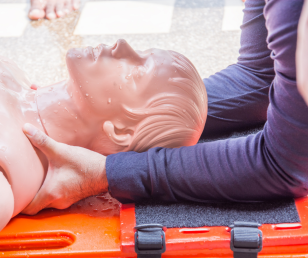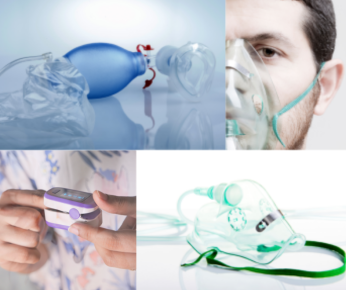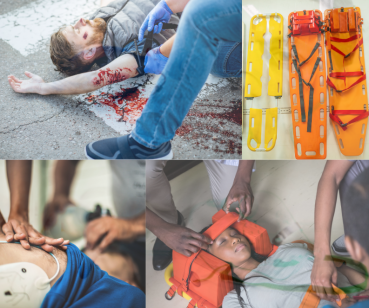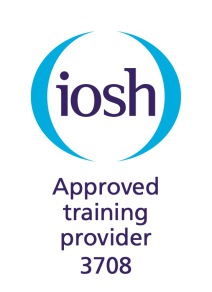
Level 3 Award in Emergency Care for First Responders (RQF)
Who is this qualification for?
This pre-hospital care qualification is aimed at learners working in roles where their primary or secondary focus involves giving emergency medical care as the first responder on the scene of an accident or emergency. Roles may include, security operatives, close protection officers, event medical operatives, cabin crew and community first responders, among others.
It is ideal for those learners that need a wider level of knowledge than standard first aid at work qualifications.
In line with industry guidance, the qualification supports responders for a period of 3 years, at which point learners will need to requalify by completing a minimum of 18 hours requalification over a minimum of 3 days.
Highfield Level 3 Award in Emergency Care for First Responders (RQF) is now aligned with Category D of the Pre-Hospital Emergency Medicine (PHEM) Framework which will support learners to respond to a range of pre-hospital emergency care situations.
How long will it take?
To complete this qualification learners should expect to undertake 50 hours of learning, typically over four days, with a minimum contact time of 40 hours.
Topics covered
Topics covered include the roles and responsibilities of first responders, minimising the risk of infection, establishing consent, completing a patient clinical record, communication, safeguarding, assess an incident, conducting casualty surveys, scene survey, conducting a primary survey of a casualty, conducting a head to toe survey, the purpose and priorities of triage, summonsing appropriate assistance, gathering a casualty history, effective handover of a casualty, the recovery position, cardiopulmonary resuscitation (CPR) for Adults, Children and Infants, correct use of an automated external defibrillator, correct use of a Bag Valve Mask, administering therapeutic oxygen therapy, understanding nitrous oxide, how to safely handle medical gas cylinders, recognise and manage a compromised airway, selection and use of Oropharyngeal airways (OPA) and Nasopharyngeal airways (NPA), the cardiovascular system and the respiratory system.
The qualification also covers assisting a casualty who is suffering from major injury or illness such as choking, external bleeding, catastrophic haemorrhage, shock, fracture and dislocation, sprain and strain, head and spinal injuries, application of cervical collars, removing motorcycle helmets, spinal immobilisation, use of a scoop stretcher, head blocks and straps, chest injuries, minor injuries, burns and scalds, eye injuries, small cuts, grazes, small splinters and bruises, sudden poisoning, major illnesses and medical emergencies, heart attack, stroke, asthma attack, diabetic emergency, sepsis, heat stroke, heat exhaustion, hypothermia, dehydration, frostbite,
seizures and anaphylaxis.
Assessment method
This qualification is assessed by lots of practical demonstration completed throughout the course delivery. This ongoing assessment requires learners to demonstrate practical first aid skills through simulation, in response to scenarios set by the assessor and a multiple-choice theory test where you are required to answer a 65-question multiple-choice question paper. The minimum pass mark for this is 45 out of 65 (approx. 70%).
This course is only available for group bookings of 4 or more either at our Sywell centre or at your premises. Please contact us for a quote.









